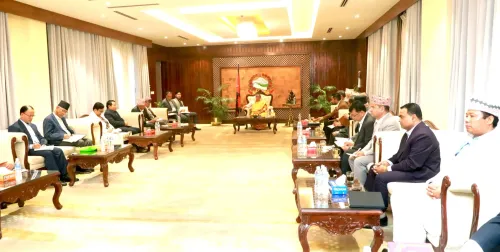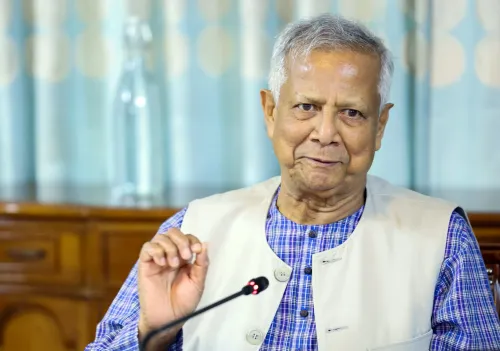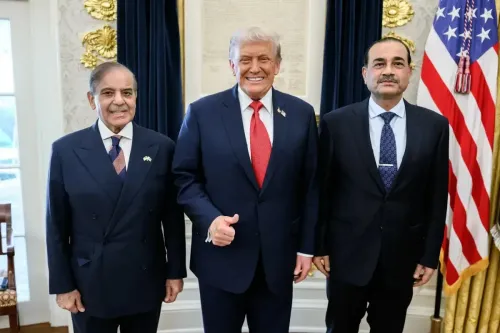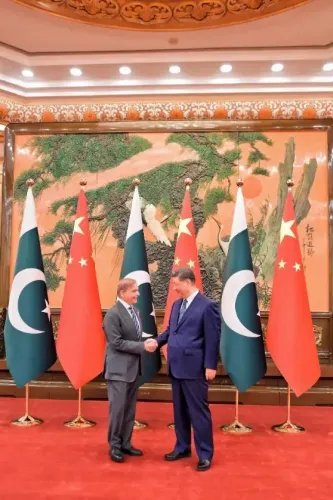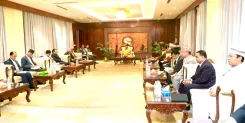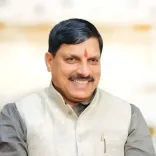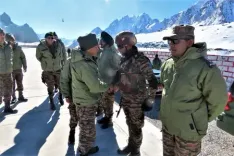Why has BNP Rejected Yunus-led Interim Government's Logic?
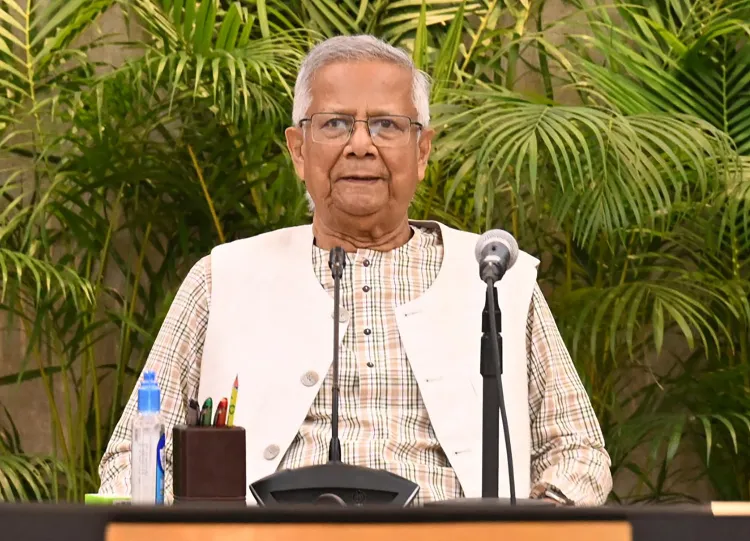
Synopsis
Key Takeaways
- BNP rejects the logic of delaying elections for reforms.
- Immediate polls are urged to restore democracy.
- Party leaders advocate for the people's right to vote.
- Political tensions are escalating in Bangladesh.
- Critics question the interim government's transparency.
Dhaka, July 12 (NationPress) The Bangladesh Nationalist Party (BNP) on Saturday categorically dismissed the rationale provided by the interim government led by Muhammad Yunus regarding the need for "justice and reforms before elections." They emphasized that there would be no further acceptance of delays masked as restructuring issues, as reported by local media.
During a new member recruitment and renewal campaign, BNP Standing Committee Member Dr. Abdul Moyeen Khan asserted that the immediate focus should be on guaranteeing the people's right to vote through a transparent and fair electoral process, as highlighted by the leading Bangladeshi newspaper, Dhaka Tribune.
"The BNP will no longer accept the reasoning of 'first justice and reform, then elections,'" he stated.
He further added, "Justice and reform are ongoing processes. The primary role of an interim government is to restore democracy. This can only be achieved by swiftly returning power to the populace through elections."
Khan urged party members to exercise restraint, advising, "We must not emulate the behavior of the Awami League leaders and activists. Our actions should exemplify democracy and self-control."
On Friday, BNP Senior Joint Secretary General Ruhul Kabir Rizvi also addressed the matter, emphasizing that reforms need to be "dynamic."
"Reform is not a static entity like the Thai mountain range; it is a dynamic process," Rizvi explained.
He contended that while reforms are crucial, they should not serve as a pretext to postpone elections.
"Necessary reforms and appropriate laws must be enacted for the sake of democracy, the state, or the people," he stated, adding that "insisting that reforms must precede elections and that the July Charter should be included in constitutional fundamentals is misleading. This creates confusion among the populace. Why mislead the public like this?"
Rizvi urged all political factions to concentrate on restoring power to the people instead of diverting attention with misleading agendas.
"This is the most significant task at hand," he asserted.
The BNP's vigorous reaction follows remarks by National Citizen Party (NCP) Convener Nahid Islam, who claimed the citizens of Bangladesh would resist a general election devoid of judicial and political reforms.
During a rally on Friday, he expressed, "Those attempting to conduct general elections without trials and reforms are the very individuals scheming to delay the polls. The young leaders of the mass uprising are advocating for elections and voting rights."
The ongoing discourse regarding the order of reforms and elections has intensified the political turmoil within Bangladesh.
Critics assert that the Yunus-led interim administration, which assumed power after the ousting of the democratically elected Awami League government in August 2024, lacks transparency and a definitive plan for reinstating democratic procedures.
Once united in their opposition to former Prime Minister Sheikh Hasina, the political groups that rallied behind the July uprising to elevate Muhammad Yunus as Chief Advisor are now exhibiting signs of fragmentation.

